Rob Bignell's Blog, page 272
January 25, 2016
Ways to end a story that���ll make readers happy
For readers, 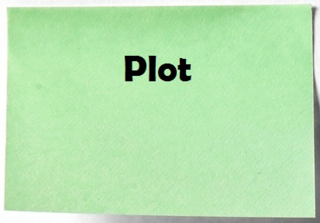 the ending of a story offers closure ��� and more than just literally coming to its last word. They���ve been on a journey with a character who they became emotionally invested in. A good storyteller understands this and so offers an ending that addresses the readers��� psychological needs.
the ending of a story offers closure ��� and more than just literally coming to its last word. They���ve been on a journey with a character who they became emotionally invested in. A good storyteller understands this and so offers an ending that addresses the readers��� psychological needs.
While there are multiple ways to accomplish this, generally, stories end in one three ways ��� normalize world order, wish-fulfillment, or a conceptual breakthrough.
Normalize world order
When the main character solves the central problem that set the story in motion, the ending marks a ���return to normal.��� In short, the world exists at story���s end just as it did before the story began. This form of story is melodramatic in nature and so common in genre fiction. While most readers expect a ���return to normal��� since it���s a convention of Western storytelling, your tale need not be limited to this kind of ending, however. Instead, make the journey more interesting by having characters learn something along the way that cause them to change for the better. In this way, order is restored but the world (at least for one character) is better than before.
Wish-fulfillment
In these story endings, once the character solves the problem, he becomes rich, famous, a champion, gets the perfect woman, etc. In some way, his status improves. The potential problem with such an ending is that it often is unrealistic, even absurd, when one thinks about them. After all, what really are the chances that Luke Skywalker would fire the one shot that hits just the right spot so that he destroys the Death Star? I know, I know, the chances are ���one in a million.��� But that���s the point. Such endings, of course, are expected in specific genres. For example, in romances, the girl will get the guy.
Conceptual breakthrough
This ending involves the main character learning a valuable lesson, aka ���conceptual breakthrough,��� that causes characters to grow as people. Such endings are the point of more literary-oriented stories. While even genre fiction centers on some type of lesson or sacrifice that a character learns/makes that allows him to solve the problem, such as believing the ends don���t justify the means, the difference is that a conceptual breakthrough marks a significant turning point in the character���s outlook on life. The character becomes a different person that the one he was at story���s beginning.
Of course, there is overlap among these different types of endings. In fact, all three could theoretically occur in a tale.
Professional Book Editor: Having your novel, short story or nonfiction manuscript proofread or edited before submitting it can prove invaluable. In an economic climate where you face heavy competition, your writing needs a second eye to give you the edge. I can provide that second eye.
<A HREF="http://ws-na.amazon-adsystem.com/widg... Widgets</A>
Related articles
 Lit term 'man vs. man' isn't gender specific
Lit term 'man vs. man' isn't gender specific Build character by looking at his values
Build character by looking at his values Use catch-phrase when creating a character
Use catch-phrase when creating a character
January 24, 2016
Five Great Humorous Thoughts on Writing
���The thing 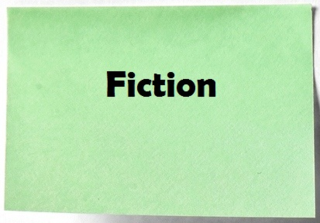 all writers do best is find ways to avoid writing.��� - Alan Dean Foster
all writers do best is find ways to avoid writing.��� - Alan Dean Foster
���Writing is like sausage making in my view; you���ll all be happier in the end if you just eat the final product without knowing what���s gone into it.��� - George R.R. Martin
���Everybody does have a book in them, but in most cases that���s where it should stay.��� - Christopher Hitchens
���Writing is easy. All you have to do is cross out all the wrong words.���- Mark Twain
���All thoughts, secret or spoken, belong in a coffee table book written in Braille, so you can really feel the emotions.��� - Jarod Kintz
Professional Book Editor: Having your novel, short story or nonfiction manuscript proofread or edited before submitting it can prove invaluable. In an economic climate where you face heavy competition, your writing needs a second eye to give you the edge. I can provide that second eye.
&amp;amp;amp;lt;A HREF="http://ws-na.amazon-adsystem.com/widg... Widgets&amp;amp;amp;lt;/A&amp;amp;amp;gt;
Related articles
 Five Great Quotations about Theme
Five Great Quotations about Theme Five Great Quotations about Biographies
Five Great Quotations about Biographies Five Great Quotations about Editing
Five Great Quotations about Editing
January 23, 2016
Immerse yourself in writing for 10,000 hours
Most of us 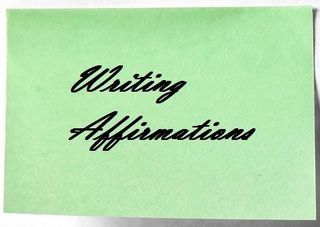 will agree that to get better at something, practice is necessary. To become a world-class master at something, however, requires an enormous amount of practice; indeed, journalist Malcom Gladwell in his book ���Outliers��� proposed the 10,000-hour rule.
will agree that to get better at something, practice is necessary. To become a world-class master at something, however, requires an enormous amount of practice; indeed, journalist Malcom Gladwell in his book ���Outliers��� proposed the 10,000-hour rule.
In anecdotal examinations of Canada���s top hockey players, businessmen like Bill Gates, and Musicians like the Beatles, Gladwell found that the key to their success was a matter of practicing a task for about 10,000 hours.
Translate that to how you might become a top-notch writer. It requires a daily commitment to writing. This doesn���t mean 10,000 hours of talking about writing or thinking about writing or reading good writing (though all of that helps) but 10,000 hours of actual writing.
This daily commitment must continue over a lengthy period of time. If you spent eight hours a day doing nothing but writing, you would need to spend 1250 consecutive days or nearly 3.5 years, to master writing. Four hours a day of writing equals nearly 7 years. If you wrote only an hour a day, you would need 27 years to get to 10,000 hours.
Of course, 10,000 hours is an average. On the down side, you may need more practice time. On the up side, you may require fewer. In addition, you���ve already been writing for some time, so you���ve already started chipping away at the 10,000 hours.
Regardless, the lesson to be taken away here is that if you want to be a top-notch writer, you must commit yourself daily to actually writing. So���what will you write about today?
Professional Book Editor: Having your novel, short story or nonfiction manuscript proofread or edited before submitting it can prove invaluable. In an economic climate where you face heavy competition, your writing needs a second eye to give you the edge. I can provide that second eye.
<A HREF="http://ws-na.amazon-adsystem.com/widg... Widgets</A>
Related articles
 Five Great Quotations about the Writing Process
Five Great Quotations about the Writing Process Serial comma: Use, don't use, or don't worry?
Serial comma: Use, don't use, or don't worry? Make tables readable in your self-published book
Make tables readable in your self-published book
January 22, 2016
Tips to avoid stage fright in book presentations
For many  writers, public speaking ��� even if it���s just reading from one���s book ��� is a daunting experience.
writers, public speaking ��� even if it���s just reading from one���s book ��� is a daunting experience.
Nervousness about speaking can turn into stage fright. While some fear is natural, if unchecked it will negatively affect your presentation.
Fortunately, there are a number of steps you can take to dampen your apprehension:
��� Practice beforehand. Familiarity with the material you cover will give you increased confidence. ��� Avoid caffeine, sugar and alcohol before the presentation. These chemicals can exacerbate your nervousness. Instead, stick to water.
��� Interact with the audience before the presentation. This helps you become more comfortable by creating a relationship, even if a minor one, with the audience and by building your confidence when others respond with interest to you.
��� Remain aware of your posture. Like mom said, you want to sit up straight and relaxed during a presentation. This actually projects an aura of confidence, which others will respond positively to, further building your comfort level.
��� Shift your thoughts from your fear of messing up or of not being accepted to thoughts that are calm and reassuring. Imagine that you���re at that one place where you are most at peace. Breathe deeply, and if necessary, pause for a few seconds and concentrate on listening to the rhythm of your breathing.
��� Focus on those in the audience who are paying attention or giving other positive nonverbal feedback. When a person smiles at your joke or nods in approval, make eye contact with him. Don���t stare solely at that person (or you���ll make him nervous!) but frequently come to back him ��� and others who are reassuring. Besides boosting your confidence, those audience members will feel an even stronger bond with you.
��� Don���t worry about making mistakes. Most audience members won���t think twice about it. They will notice your nervousness and embarrassment, however.
Remember: What you present to readers likely will be received quite well. After all, they came to your presentation because they found you, your book, or your topic intriguing! What will cause them to react negatively to the presentation will be your fear of not being accepted, as they���ll find your nervousness distracting. In short, wipe away the fear, and you���re a winner.
Professional Book Editor: Having your novel, short story or nonfiction manuscript proofread or edited before submitting it can prove invaluable. In an economic climate where you face heavy competition, your writing needs a second eye to give you the edge. I can provide that second eye.
<A HREF="http://ws-na.amazon-adsystem.com/widg... Widgets</A>
Related articles
 Five Great Quotations about What is a Writer
Five Great Quotations about What is a Writer Use third - person limited for greater clarity
Use third - person limited for greater clarity
January 21, 2016
Editing client publishes drug kingpin���s biography
A recent 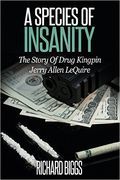 editing client has published his biography of drug kingpin Jerry Allen LeQuire. Using hundreds of hours of interviews and volumes of documentation, Richard Biggs��� ���A Species of Insanity��� is the remarkable story of LeQuire���s journey from a small east Tennessee town to the inner circles of the Medellin drug cartel.
editing client has published his biography of drug kingpin Jerry Allen LeQuire. Using hundreds of hours of interviews and volumes of documentation, Richard Biggs��� ���A Species of Insanity��� is the remarkable story of LeQuire���s journey from a small east Tennessee town to the inner circles of the Medellin drug cartel.
LeQuire���s early venture of flying marijuana from Jamaica into Maryville, Tennessee, came to a halt with a gun battle with the DEA. On the run, LeQuire escaped to Colombia where he established a smuggling operation that drew the cartel���s praise and the attention of others, including a revolutionary front associated with the CIA that offered him $20 million to fly drugs for them.
When LeQuire moves his operation to south Florida, he accumulates so much wealth he had more than $20 million stacked in the closet of his palatial home. The journey ends when the DEA intercepts one of his planes.With F. Lee Bailey as his attorney, he might have gotten away with it ��� if not for a betrayal.
The book is available online.
Professional Book Editor: Having your novel, short story or nonfiction manuscript proofread or edited before submitting it can prove invaluable. In an economic climate where you face heavy competition, your writing needs a second eye to give you the edge. I can provide that second eye.
<A HREF="http://ws-na.amazon-adsystem.com/widg... Widgets</A>
Related articles
 Make tables readable in your self-published book
Make tables readable in your self-published book Five Great Quotations about the Writing Process
Five Great Quotations about the Writing Process Editing clients publish first novel, 'Bad JuJu'
Editing clients publish first novel, 'Bad JuJu'
January 20, 2016
Anyhow, what about irregardless vs. regardless?
Despite what 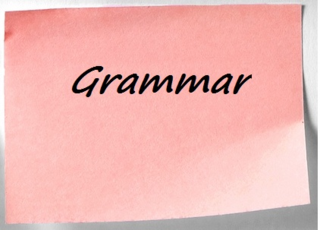 some writers think, the ir on irregardless is uneccessary.
some writers think, the ir on irregardless is uneccessary.
Regardless means nevertheless or nonetheless, as in ���Regardless if rain is forecast, we still plan to go camping.���
Irregardless has the same meaning and therefore, in the interest of efficiency, the ir is superfluous.
Professional Book Editor: Having your novel, short story or nonfiction manuscript proofread or edited before submitting it can prove invaluable. In an economic climate where you face heavy competition, your writing needs a second eye to give you the edge. I can provide that second eye.
&amp;lt;A HREF="http://ws-na.amazon-adsystem.com/widg... Widgets&amp;lt;/A&amp;gt;
Related articles
 Five Great Quotations about the Writing Process
Five Great Quotations about the Writing Process Writing Inspiration: Seek another's advice
Writing Inspiration: Seek another's advice Writing Inspiration: Who are you?
Writing Inspiration: Who are you? Make tables readable in your self-published book
Make tables readable in your self-published book Four ways to write a great tweet that sells books
Four ways to write a great tweet that sells books
January 19, 2016
Four writing prompts: Ambition
Good stories 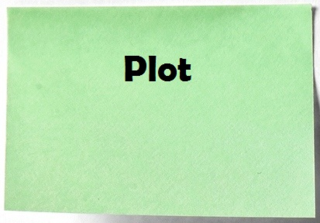 center on the goals and motivations of characters clashing. Here are four writing prompts for stories that involve the motivation of ambition.
center on the goals and motivations of characters clashing. Here are four writing prompts for stories that involve the motivation of ambition.
Man vs. nature
A man faces the challenge of crossing a desert on foot. Why does he need to cross it? What obstacles will he face on the way?
Man vs. man
Two men possess the same ambition. Why do they each have that goal? What is at stake for each man if they do not achieve their goal? What tussles have they had in the past with one another that causes them to dislike the other (and hence turns up the desire for each to achieve their goal)?
Man vs. society
What happens when a man���s ambitions run against his society���s values? In what ways are society���s values questionable (so that the reader will root for the main character)?
Man vs. himself
A man must decide if his ambition is worth pursuing. What external and internal forces tug at him to continue the pursuit as well as to quit? What is the price of pursuing and of giving up on his ambition?
Professional Book Editor: Having your novel, short story or nonfiction manuscript proofread or edited before submitting it can prove invaluable. In an economic climate where you face heavy competition, your writing needs a second eye to give you the edge. I can provide that second eye.
<A HREF="http://ws-na.amazon-adsystem.com/widg... Widgets</A>
Related articles
 Lit term 'man vs. man' isn't gender specific
Lit term 'man vs. man' isn't gender specific Don't underserve a character in story
Don't underserve a character in story Fix scene by employing black box analysis
Fix scene by employing black box analysis
January 18, 2016
Don���t overstuff story with packing peanuts
Knowing 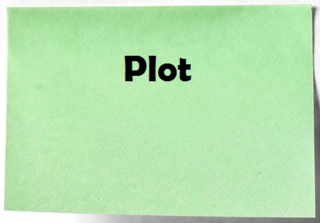 when you���ve overstuffed a box is easy enough. The sides bulge, and the lid won���t close. Knowing when you���ve overstuffed a box with packing peanuts is a matter of mastering the craft of writing.
when you���ve overstuffed a box is easy enough. The sides bulge, and the lid won���t close. Knowing when you���ve overstuffed a box with packing peanuts is a matter of mastering the craft of writing.
Packing peanuts in fiction are elements added to a story to fill the spaces between big scenes or important events. Some good examples are a character approaching the building where the next big scene will occur or perhaps a character taking stock of who else is at an event to set up the big scene that follows. Such portions of the story tend to lack conflict, are low on tension, and slow the pacing.
Given this, packing peanuts always ought to serve a purpose in a story. For example, they could establish the setting, develop a character by giving insights into his behavior and hence his motivations and goals, or they might help create a tone or the atmosphere for the ensuing big scene.
All stories need some packing peanuts, but a story shouldn���t consist of nothing but packing peanuts. You wouldn���t send a box in the mail to a friend with only packing peanuts in it, after all, so you wouldn���t do the same to readers.
Stories heavy on packing peanuts tend to lack fully developed big scenes. The novice author���s solution is to overwrite the portions in between the action or to overestimate the importance of exposition to set up the big scene. Such writers instead should do more beat-by-beat outlining of their big scenes and then make room for it by dumping most of the packing peanuts.
Need an editor? Having your book, business document or academic paper proofread or edited before submitting it can prove invaluable. In an economic climate where you face heavy competition, your writing needs a second eye to give you the edge. I can provide that second eye.
&amp;lt;A HREF="http://ws-na.amazon-adsystem.com/widg... Widgets&amp;lt;/A&amp;gt;
Related articles
 Five Great Quotations about Story Ideas
Five Great Quotations about Story Ideas Five Great Quotations about Storytelling
Five Great Quotations about Storytelling How to properly punctuate 'et. al'
How to properly punctuate 'et. al' Writing Inspiration: Revise and continue
Writing Inspiration: Revise and continue Writing Prompt: Start with last line
Writing Prompt: Start with last line
January 17, 2016
Five Great Quotes about a ���Room of One���s Own���
���Writing 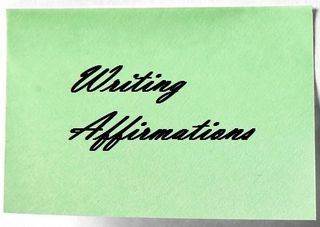 is a fairly lonely business unless you invite people in to watch you do it, which is often distracting and then have to ask them to leave.��� - Marc Lawrence
is a fairly lonely business unless you invite people in to watch you do it, which is often distracting and then have to ask them to leave.��� - Marc Lawrence
���Close the door. Write with no one looking over your shoulder. Don't try to figure out what other people want to hear from you; figure out what you have to say. It's the one and only thing you have to offer.��� - Barbara Kingsolver
���Every writer must acknowledge and be able to handle the unalterable fact that he has, in effect, given himself a life sentence in solitary confinement. The ordinary world of work is closed to him - and that if he's lucky!��� - Peter Straub
���Writing is the most disembodied art, and reading and writing are largely private and solitary experiences...��� - Rebecca Solnit
���We will need to find people who will provide a safe writing space for us, where criticism comes late and love and delight come early.��� - L.L. Barkat
Professional Book Editor: Having your novel, short story or nonfiction manuscript proofread or edited before submitting it can prove invaluable. In an economic climate where you face heavy competition, your writing needs a second eye to give you the edge. I can provide that second eye.
&amp;amp;amp;amp;lt;A HREF="http://ws-na.amazon-adsystem.com/widg... Widgets&amp;amp;amp;amp;lt;/A&amp;amp;amp;amp;gt;
Related articles
 Five Great Quotations about the Writing Process
Five Great Quotations about the Writing Process Writing Inspiration: Seek another's advice
Writing Inspiration: Seek another's advice Make tables readable in your self-published book
Make tables readable in your self-published book
January 16, 2016
Writing Inspiration: Take a risk
Risk often 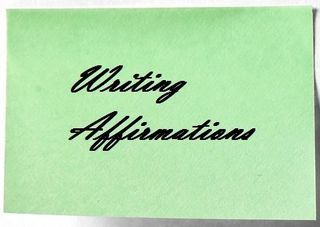 means mistakes will be made. If you knew exactly what to do and simply had to follow the steps to certain success, there would be no risk. Maybe what you���re writing is too safe, given your skills and interests. To grow as a writer, try a plot or a literary device you���ve never used before, such as writing a story involving a murder if you���ve only written romances. Don���t worry about botching the story; you couldn���t develop as a writer if you didn���t try. Besides, what if you discover you have a real knack for writing mysteries?
means mistakes will be made. If you knew exactly what to do and simply had to follow the steps to certain success, there would be no risk. Maybe what you���re writing is too safe, given your skills and interests. To grow as a writer, try a plot or a literary device you���ve never used before, such as writing a story involving a murder if you���ve only written romances. Don���t worry about botching the story; you couldn���t develop as a writer if you didn���t try. Besides, what if you discover you have a real knack for writing mysteries?
Professional Book Editor: Having your novel, short story or nonfiction manuscript proofread or edited before submitting it can prove invaluable. In an economic climate where you face heavy competition, your writing needs a second eye to give you the edge. Whether you come from a big city like Bakersfield, California, or a small town like Mosquitoville, Vermont, I can provide that second eye.
<A HREF="http://ws-na.amazon-adsystem.com/widg... Widgets</A>Related articles
 Five Great Quotations about Rules of Writing
Five Great Quotations about Rules of Writing Don't copy favorite characters, settings
Don't copy favorite characters, settings


